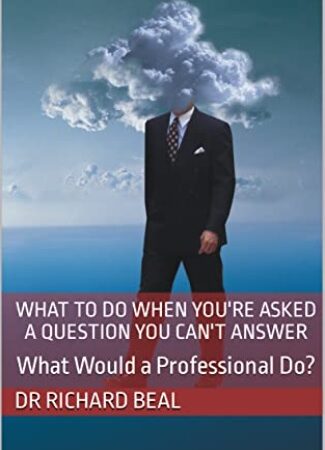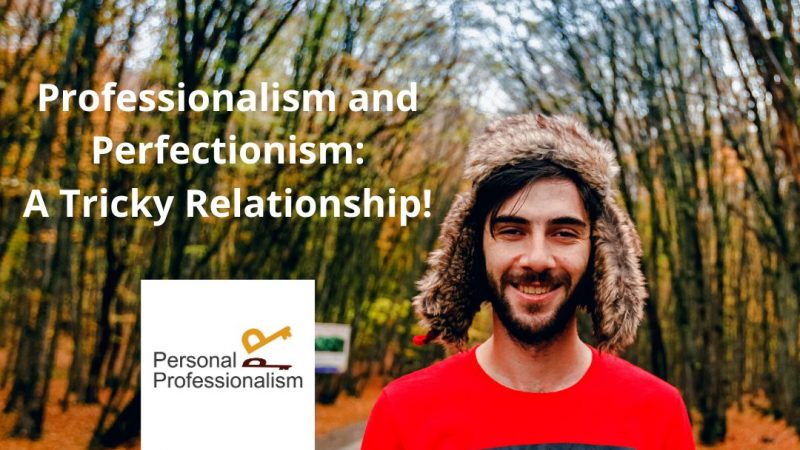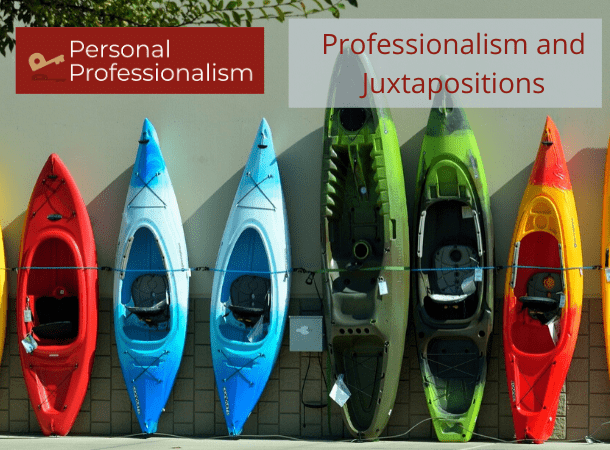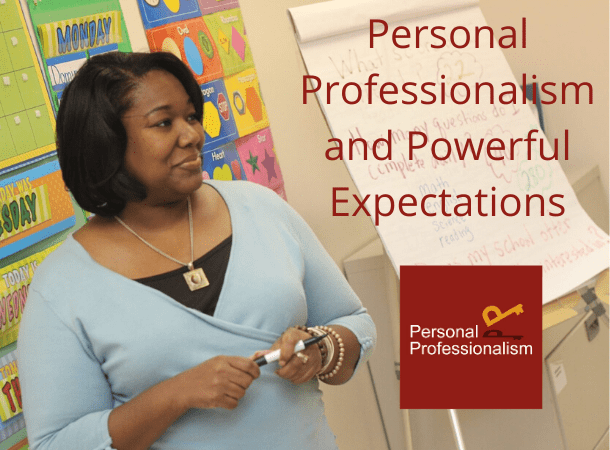Personal Professionalism – Process, Planning and Preparation as Transferable Skills
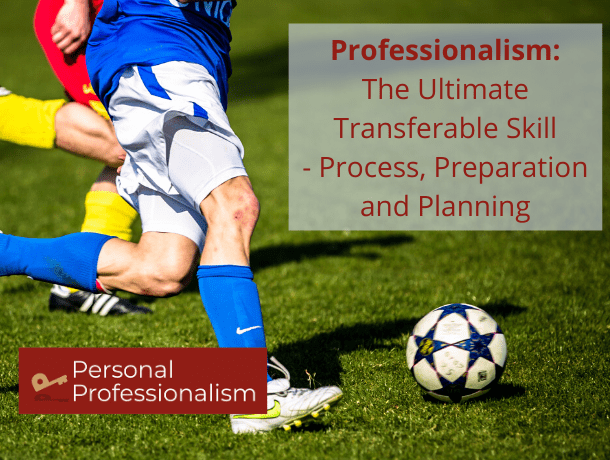
Lessons from the field.
I’ve recently had the great pleasure of speaking with a number of service providers who all happen to be former sports professionals. Each of them has retired from their sport and taken up careers in different sectors.
I asked them if there was anything that they brought from their old job to their new ones. Using different words and different examples, each told me that the most valuable transferable ‘thing’ was a ‘default setting’ for preparing and planning to help them perform their new roles.
What’s more, it was this ‘default setting’ to preparation that set them apart from their new colleagues who did not have that same grounding. That’s not to say that their colleagues did not perform, it’s just that they noticed that these colleagues did not have it in their mindset to undertake preparation for all but the most obviously important tasks in their jobs.
From Amateur to Pro.
I asked if this approach to preparation was something that was different to when they played sport as amateurs, prior to turning pro.
In short, yes.
Although they trained in advance of games when playing as amateurs, naturally it wasn’t to the same standard. There were not the same expectations of attendance at training; nor were expectations of participation and performance the same.
Amateur team-mates wanted to play well and win games, but those team-mates were often full-time workers or students and only part-time players.
The emotional commitment and passion for the sport was there, but it was a far smaller part of players’ lives. Their livelihood was not dependent upon game performance nor attendance at training.
The Wisdom of Preparation
There is a great saying that I first heard from a professional footballer. To paraphrase:
‘…you can’t win a championship in pre-season training, but you can lose one’.
Failure to prepare will lead to failure to perform.
Sports people seem to have a greater sense of this. Maybe it’s easier for sports people to understand because success and failure are relatively more obvious and immediate. You win the race, the game, the contest; or you lose.
It’s not only sport:
Of course, these lessons would be similar from musicians, dancers and actors – any role with a visible performance element.
What does ‘preparation’ look like in their new career?
Three of these former-sports professionals with whom I spoke had developed a mindset of defining their role performance and their specific moments of performance. More simply, when there was an important meeting or negotiation coming up, they would imagine what success would look like – a decision, an action or, best of all, a sales order!
Let’s call it a ‘Performance Moment’; it’s that moment in time in which a person fulfils the purpose of their work-role. In sport it would be the delivery of practised activities than culminate in performance in the game or event; in the office it might be the period of time around that final deliverable, the big meeting or the agreement to a contract.
In their new roles, they identified their Performance Moments. That would once have meant working on physical fitness, honing skills and learning team game plans in team meetings.
And with Performance Moment, then there must be a level or form or period of preparation that is apparent/required.
The Process of Preparing.
What struck me is that they all used the word ‘process’ with regard to preparing. My interpretation of what that process looks like for a team sport might look as follows:
- Performance Moment – winning the game next weekend
- Purposeful – everything about the preparing was aimed at giving the best possible circumstances for the Performance Moment: ‘In our training programme, we expect to achieve:
- Sharper ball passing skills
- A shared understanding of and commitment to the game plan
- Last minute fitness
- Structured – there was a beginning, middle and end to the preparation activities so that it was intentional and had form and function: ‘In order to achieve the above, we will:
- Complete Ball Passing Exercises 1, 2 and 3
- Hold a team meeting then step through the plan
- Take resistance training sessions on Tuesday and Thursday; rest days will be on Wednesday and Friday
- Planned – they didn’t make up the preparation as they went along. It was about accentuating strengths and minimising weakness and risk exposures and very much based in reflection of past performances: ‘All members of the team, assistant coaches and fitness supervisors will meet at the training ground at 2pm; we will need one ball for every two players, a meeting room; a whiteboard with markers; and access to the weights room’
An old process in a new context:
The preparation process that they brought from their professional sports’ days might look something like the following in their new career:
- Performance Moment:
- What will the performance moment look like? Will it be a meeting, a negotiation, a phone call, a chat over coffee or perhaps a workshop?
- How will I know that I have succeeded? What will success look like? Specifically, how will it be measured?
- Purposeful:
- Are all the preparatory activities contributing to you being ready? Are all participants ‘pulling in the same direction’?
- What is the most suitable way to behave? Will I need to be personable? Forceful? Assertive? Friendly?
- What is the best way to dress? Formally? Informally? In uniform?
- If I am making a sale, do I understand how my client perceives value?
- Structure: Is there a logical sequence of steps to achieve the required success? For example:
- Should you perform background research before you call a potential client?
- In making a sale, do you start with high level benefits first, or dive straight into detailed data?
- Is there a hierarchy on the client side that determines how you engage?
- Should you conduct due diligence before signing an agreement with a client?
- Are there laws with which you must comply before you can complete a sale?
- Is there an agenda in place?
- Plan:
- Are the activities above practical and do-able in the timeframe?
- Will all the materials I need be available?
- Does everyone know their role?
- Do all participants know where they needed to be or dial in to and at what time?
How it is all working out?
The former sports pros are still in the early stages of their new careers so any interpretation of their success or otherwise is based on my own personal interactions with them.
They were service providers to me, so it’s a subjective evaluation, albeit through the eyes of someone who has studied professionalism for a long, long time!
These people demonstrated a confidence and an engagement that I find relatively uncommon in their industry. I have met some excellent performers in my time but none quite as ready and ‘up for’ their conversations as my small sample of former professional sports people.
They knew a bit about me before we spoke and the meetings were a helpful blend of personable engagement and purposeful activity designed to move the meeting along. No time squandered on non-value-adding peripherals; there was an investment in time with me and demonstrating value.
I might be writing again in a year with a very different impression, but so far, I feel that I have been dealing with committed professionals.
And that’s a good thing!

